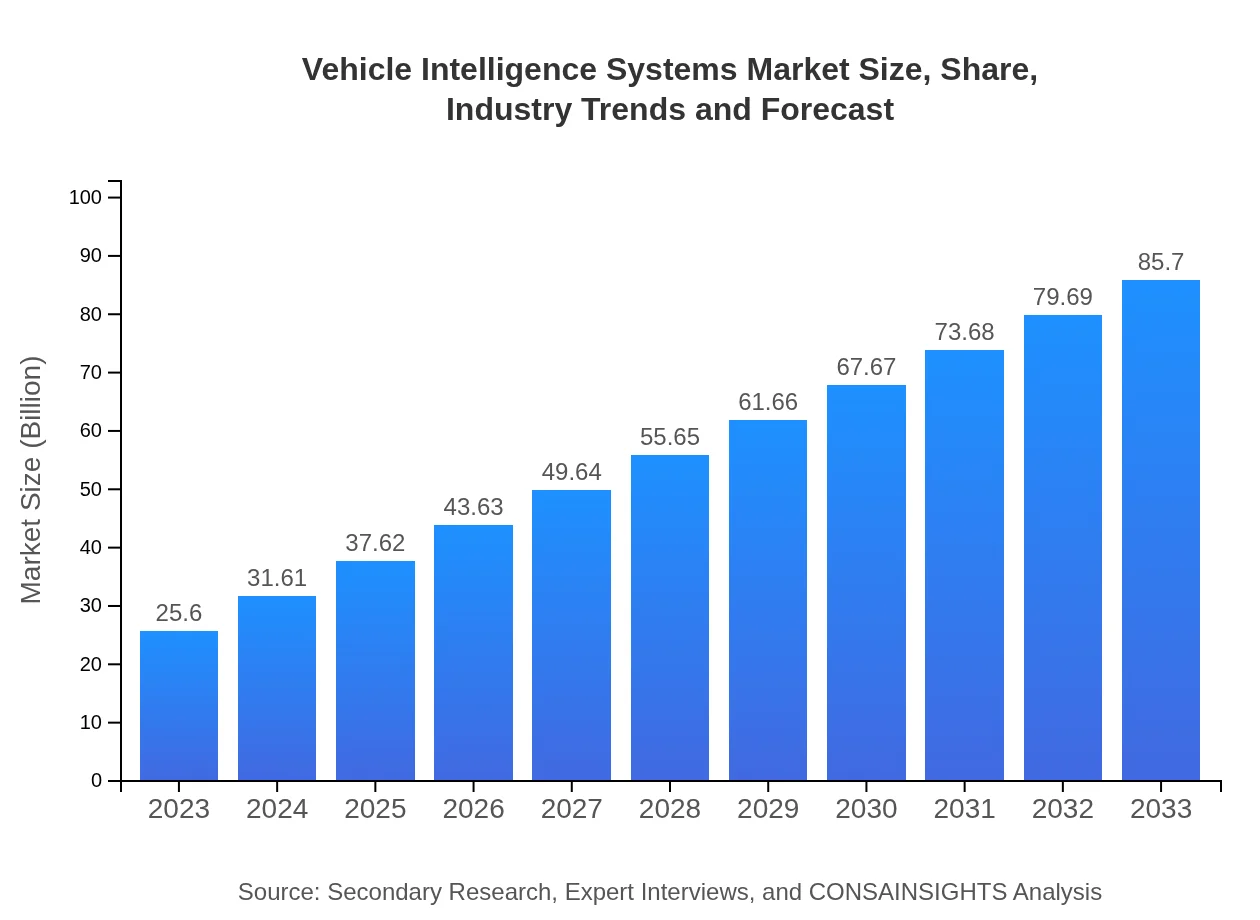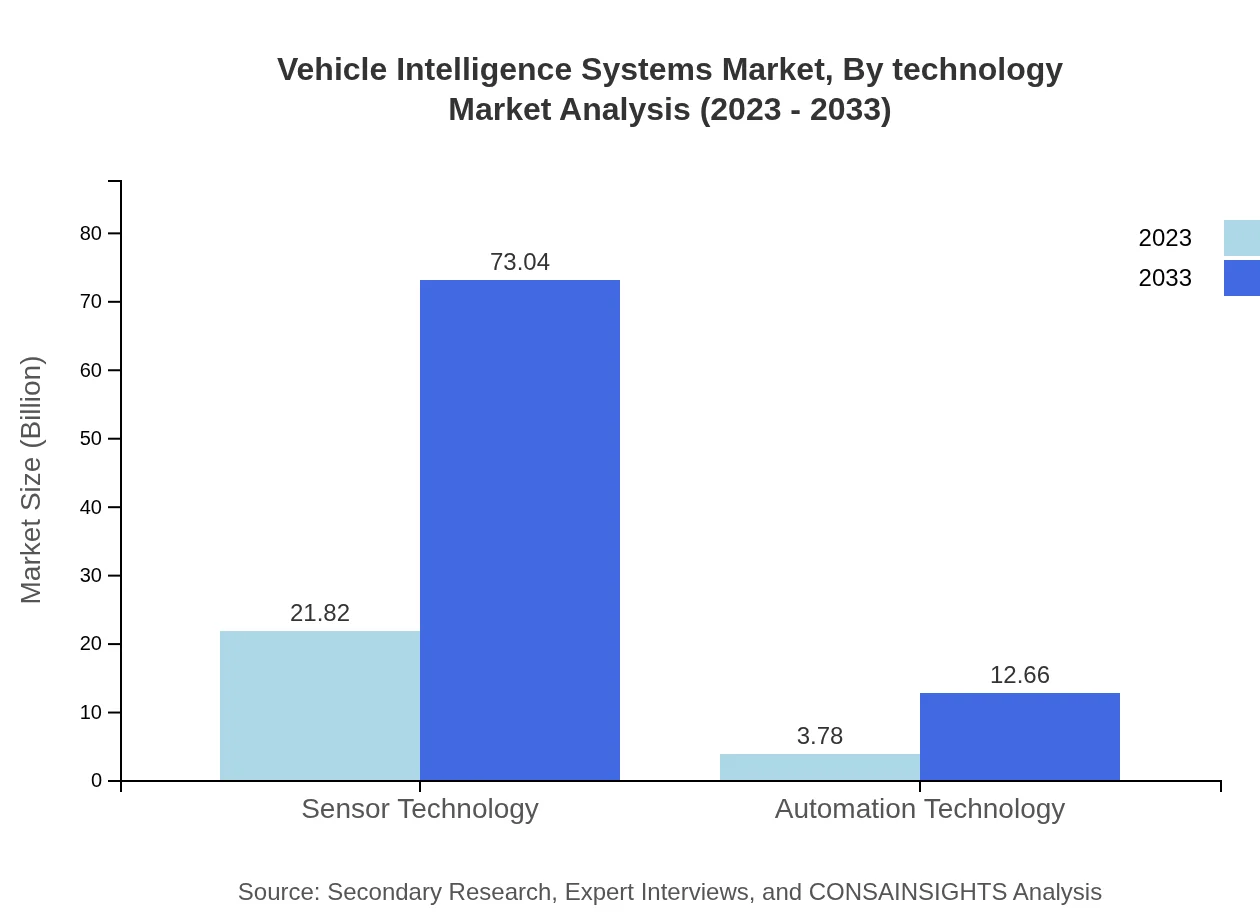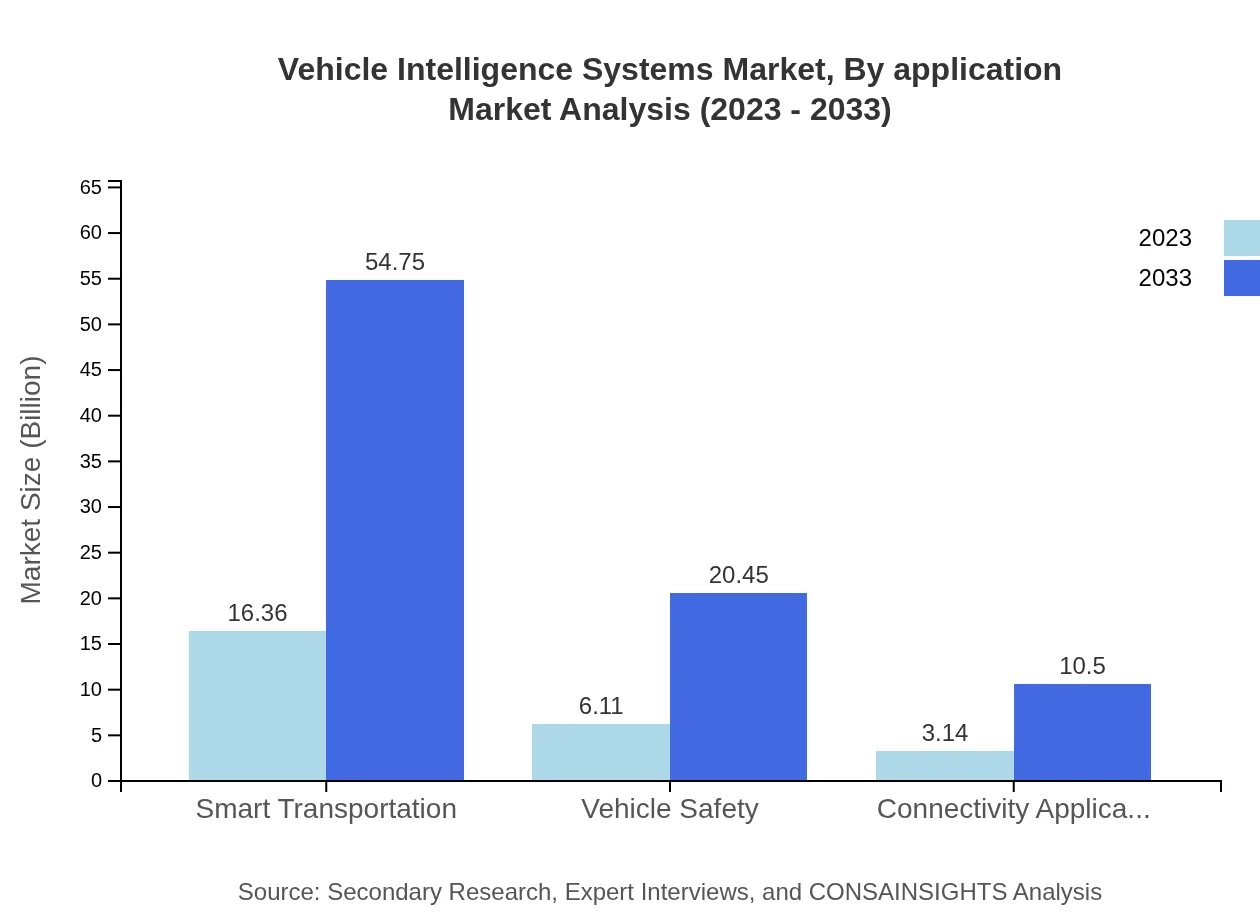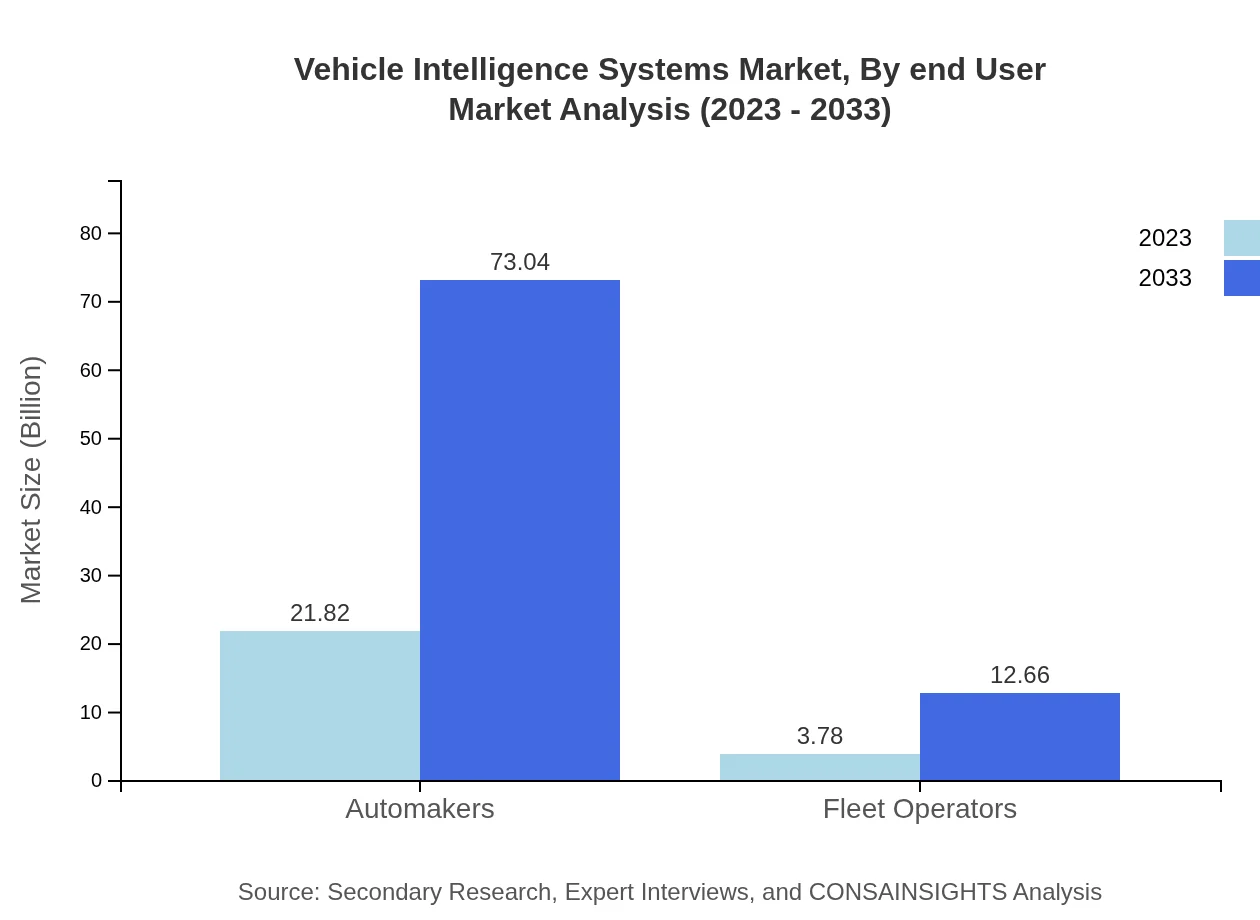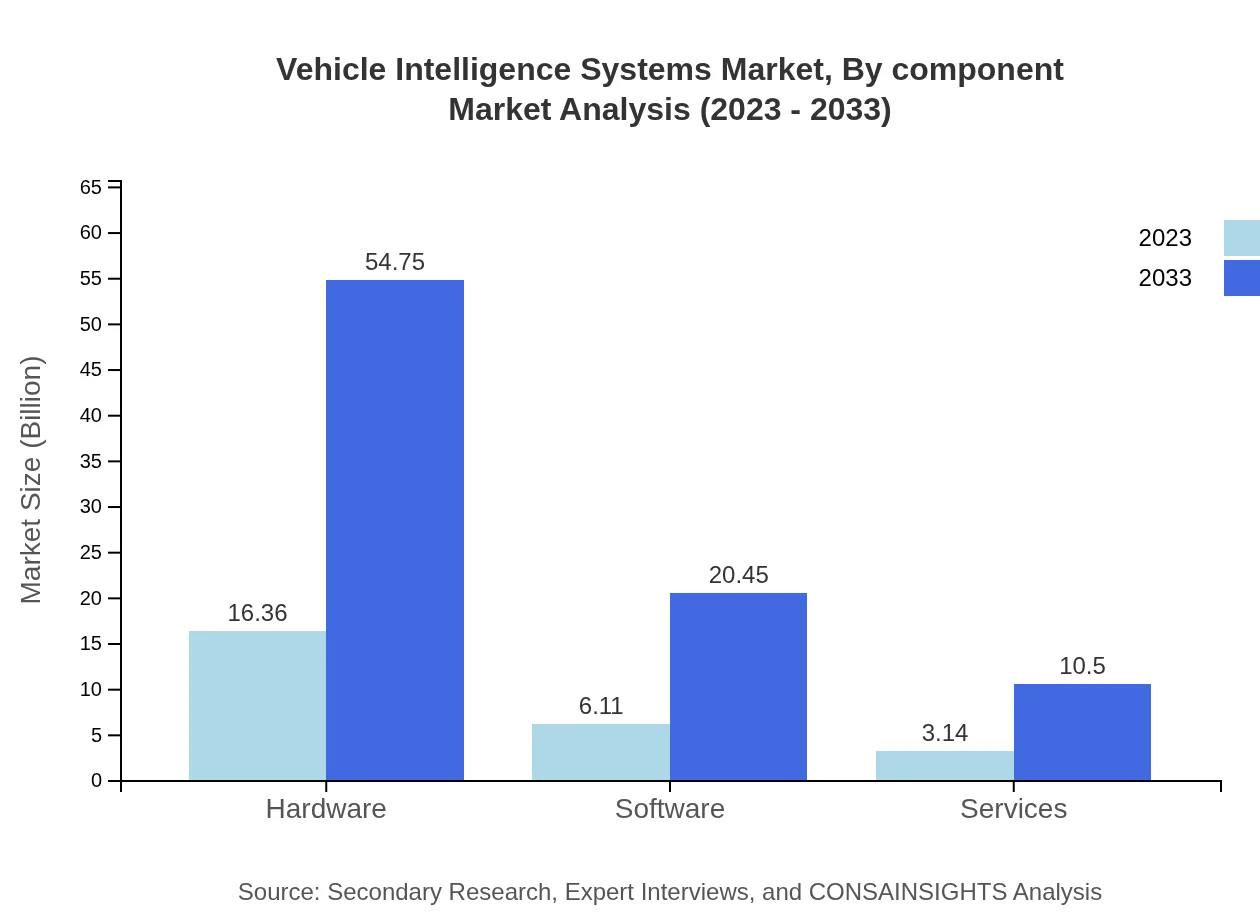Vehicle Intelligence Systems Market Report
Published Date: 02 February 2026 | Report Code: vehicle-intelligence-systems
Vehicle Intelligence Systems Market Size, Share, Industry Trends and Forecast to 2033
This report presents an in-depth analysis of the Vehicle Intelligence Systems market, covering key insights, industry trends, and forecasts from 2023 to 2033. It aims to inform stakeholders about market dynamics, technological advancements, and regional developments.
| Metric | Value |
|---|---|
| Study Period | 2023 - 2033 |
| 2023 Market Size | $25.60 Billion |
| CAGR (2023-2033) | 12.3% |
| 2033 Market Size | $85.70 Billion |
| Top Companies | Robert Bosch GmbH, Continental AG, Denso Corporation, Aptiv PLC, NVIDIA Corporation |
| Last Modified Date | 02 February 2026 |
Vehicle Intelligence Systems Market Overview
Customize Vehicle Intelligence Systems Market Report market research report
- ✔ Get in-depth analysis of Vehicle Intelligence Systems market size, growth, and forecasts.
- ✔ Understand Vehicle Intelligence Systems's regional dynamics and industry-specific trends.
- ✔ Identify potential applications, end-user demand, and growth segments in Vehicle Intelligence Systems
What is the Market Size & CAGR of Vehicle Intelligence Systems market in 2023?
Vehicle Intelligence Systems Industry Analysis
Vehicle Intelligence Systems Market Segmentation and Scope
Tell us your focus area and get a customized research report.
Vehicle Intelligence Systems Market Analysis Report by Region
Europe Vehicle Intelligence Systems Market Report:
Europe is anticipated to experience significant growth, with market values increasing from $8.24 billion in 2023 to $27.60 billion by 2033. Strong regulatory frameworks and consumer preferences towards eco-friendly and autonomous vehicles are driving this trend.Asia Pacific Vehicle Intelligence Systems Market Report:
In the Asia Pacific region, the Vehicle Intelligence Systems market is expected to grow from $5.06 billion in 2023 to $16.95 billion by 2033, fueled by robust automotive manufacturing in countries like China and Japan. Increased deployment of connected systems and smart infrastructure initiatives also contribute significantly to this growth.North America Vehicle Intelligence Systems Market Report:
North America is set to remain a leader in the Vehicle Intelligence Systems market, with figures projected to rise from $8.26 billion in 2023 to $27.64 billion by 2033. The region is witnessing advanced technological implementations, supported by companies investing heavily in R&D and innovative solutions to meet safety standards.South America Vehicle Intelligence Systems Market Report:
The South American market will see gradual expansion, growing from $1.77 billion in 2023 to $5.91 billion by 2033. The growth is primarily driven by higher adoption rates of smart vehicle technologies, especially as local governments invest in improving transportation infrastructure.Middle East & Africa Vehicle Intelligence Systems Market Report:
In the Middle East and Africa, the market is forecasted to increase from $2.27 billion in 2023 to $7.60 billion by 2033. The growth is attributed to rising urbanization and the growing focus on enhancing transportation efficiency through technology.Tell us your focus area and get a customized research report.
Vehicle Intelligence Systems Market Analysis By Technology
The segment analysis shows that sensor technology dominates the market, growing from $21.82 billion in 2023 to $73.04 billion by 2033 with a stable market share of 85.23%. Following it, automation technology and smart transportation systems are also substantial, forecasting a rise from $3.78 billion to $12.66 billion in the same period.
Vehicle Intelligence Systems Market Analysis By Application
Applications in the Vehicle Intelligence Systems market include fleet operators and automakers. The automakers' segment alone is set to grow significantly, from $21.82 billion to $73.04 billion between 2023 and 2033, constituting 85.23% of the market share.
Vehicle Intelligence Systems Market Analysis By End User
The market's end-user analysis indicates a robust uptake among automakers, with the segment projected to account for the largest portion of revenue due to continual demand for safety features and enhanced driving experiences, growing from $21.82 billion to $73.04 billion through 2033.
Vehicle Intelligence Systems Market Analysis By Component
Components such as hardware and software are expected to witness growth, with hardware projected to evolve from $16.36 billion to $54.75 billion by 2033, further solidifying its position in creating advanced vehicle intelligence architectures.
Vehicle Intelligence Systems Market Trends and Future Forecast
Tell us your focus area and get a customized research report.
Global Market Leaders and Top Companies in Vehicle Intelligence Systems Industry
Robert Bosch GmbH:
A leading global supplier of technology and services, Bosch offers advanced driving assistance systems and automotive safety solutions that significantly enhance vehicle intelligence capabilities.Continental AG:
Continental is a technology company that designs and manufactures automotive parts and systems, focusing on connectivity and vehicle automation to optimize user experience.Denso Corporation:
A major player in the automotive industry, Denso specializes in integrated automotive technology, manufacturing products that enhance the functionality and safety of vehicles.Aptiv PLC:
Aptiv focuses on smart mobility solutions, providing advanced software and vehicle technology that enable fully connected and autonomous vehicles.NVIDIA Corporation:
NVIDIA leads in AI computing technologies, with solutions that power advanced driver-assistance systems and fully autonomous vehicles, enhancing vehicle intelligence.We're grateful to work with incredible clients.









FAQs
What is the market size of vehicle Intelligence Systems?
The Vehicle Intelligence Systems market is valued at approximately $25.6 billion in 2023, with a projected CAGR of 12.3% from 2023 to 2033, indicating significant growth opportunities and rising demand in the automotive sector.
What are the key market players or companies in the vehicle Intelligence Systems industry?
Key players in the Vehicle Intelligence Systems market include leading automakers and tech companies that specialize in automotive technology. Their innovative approaches and investments in AI and automation are crucial to market development and user experience.
What are the primary factors driving the growth in the vehicle Intelligence Systems industry?
The growth in the Vehicle Intelligence Systems industry is driven by increasing demand for safety features, advanced connectivity, and automation in vehicles. Regulatory pressures and consumer preferences for smart technologies further fuel this expansion.
Which region is the fastest Growing in the vehicle Intelligence Systems market?
North America emerges as the fastest-growing region in the Vehicle Intelligence Systems market, projected to grow from $8.26 billion in 2023 to $27.64 billion by 2033, driven by technological advancements and consumer adoption.
Does ConsaInsights provide customized market report data for the vehicle Intelligence Systems industry?
Yes, ConsaInsights offers customized market report data for the Vehicle Intelligence Systems industry, catering to specific client needs and providing targeted insights that enhance decision-making processes.
What deliverables can I expect from this vehicle Intelligence Systems market research project?
From the Vehicle Intelligence Systems market research project, clients can expect comprehensive reports detailing market size, growth rates, segmentation data, and competitor analyses along with actionable insights for strategic planning.
What are the market trends of vehicle Intelligence Systems?
Current trends in the Vehicle Intelligence Systems market include a surge in demand for electric vehicles equipped with smart technologies, advancements in sensor technology, and a growing emphasis on vehicle safety and automation across the industry.

